JICA Ogata Research Institute Knowledge Forum ‘Energy Crisis and Climate Change: Turning the Crisis into an Opportunity for Energy Transformation’
2023.08.18
On June 21, 2023, the JICA Ogata Sadako Research Institute for Peace and Development (JICA Ogata Research Institute) held an online Knowledge Forum, titled “Energy Crisis and Climate Change: Turning the Crisis into an Opportunity for Energy Transformation.”
At the outset, JICA Ogata Research Institute Executive Director Mine Yoichi gave his opening remarks. He presented the question, “How can energy security and carbon neutrality, which may seem to contradict each other, be compatible?” and expressed his hope for debate among the speakers.
The keynote speech was given by Professor Kikkawa Takeo of the International University of Japan (IUJ), who is deeply knowledgeable in the energy field. Touching on the impact of the war in Ukraine on the G7 countries, he pointed out that Japan has an energy self-sufficiency rate of 11%, lower than that of the other G7 countries. As countries that had been dependent on natural gas and other energy sources from Russia switch to other exporting countries, Japan's continued dependence on imports will hinder its ability to secure energy. Japan should take this crisis as an opportunity to shift toward renewable energy, with the aim of increasing energy self-sufficiency and decarbonization. Kikkawa raised three issues in shifting to renewable energy: the high costs, conflicts with residents living close to renewable energy facilities, and the long lead time required to install power generation facilities. He said that Japan is still highly dependent on coal-fired power generation, and has been subjected to criticism from the international community. He then noted that coal-fired power accounted for 29% of Japan's power supply in 2021, about the same as in Germany, but Germany has clearly stated that it will eliminate all coal-fired power plants by 2030. Kikkawa pointed out that Japan should also specify when it will phase out coal-fired power generation while using its technology to reduce CO2 emissions by gradually mixing ammonia with coal for mixed-fuel firing—a technology that can make effective use of existing coal-fired power generation facilities with reduced environmental impact. This Japanese technology is particularly useful for developing countries which rely on coal-fired power, and Japan has a role to play, he stressed.
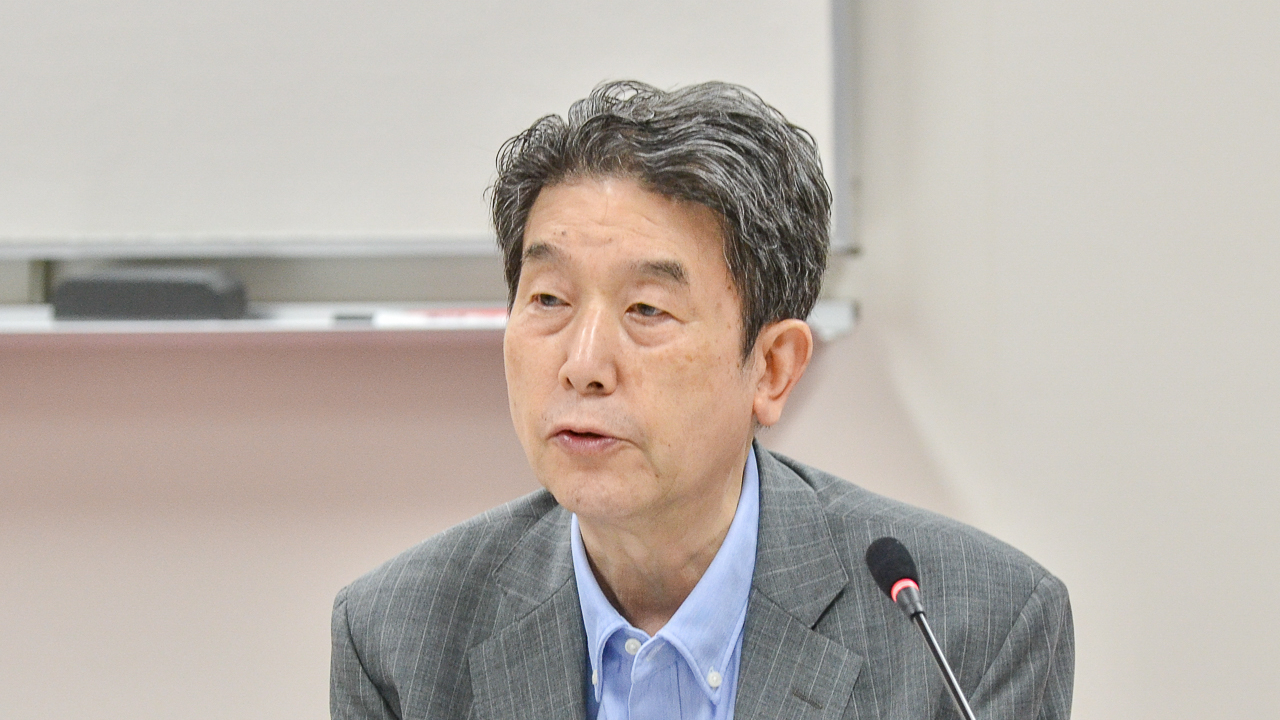
Kikkawa Takeo, professor at the International University of Japan, gives the keynote speech
At the panel discussion, panelist Morishita Maiko, program manager at the Institute for Global Environmental Strategies (IGES) said that from the perspective of mobilizing private funding, which will be critical for accelerating energy transformation, there is still room for debate about the plans and investment targets outlined in the Japanese government's “Basic Policy for the Realization of Green Transformation (GX),” and posed the question, “What should the Japanese government do to gain the understanding and support of broad stakeholders, including global investors?”
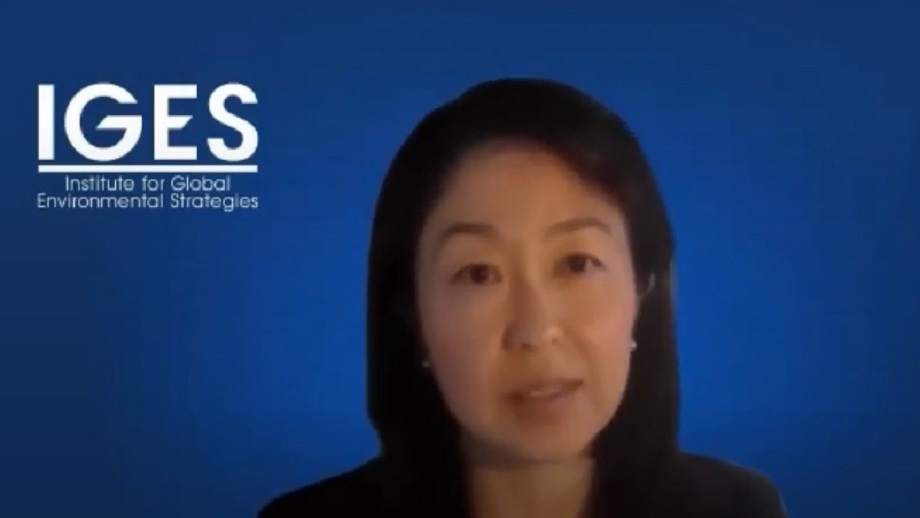
Morishita Maiko, program manager at the Institute for Global Environmental Strategies serves as a panelist
The other panelist Sato Ichiro, executive senior research fellow at the JICA Ogata Research Institute, also made a proposal, saying that “Power generation and electricity retail businesses have been liberalized in Japan, and a number of new regional electric power companies have been established, some of which are funded by local governments and local businesses. Japan’s experience and expertise in promoting decarbonization while vitalizing the local economy by utilizing local capital and human resources may be useful in building decarbonized distributed energy systems in developing countries.”
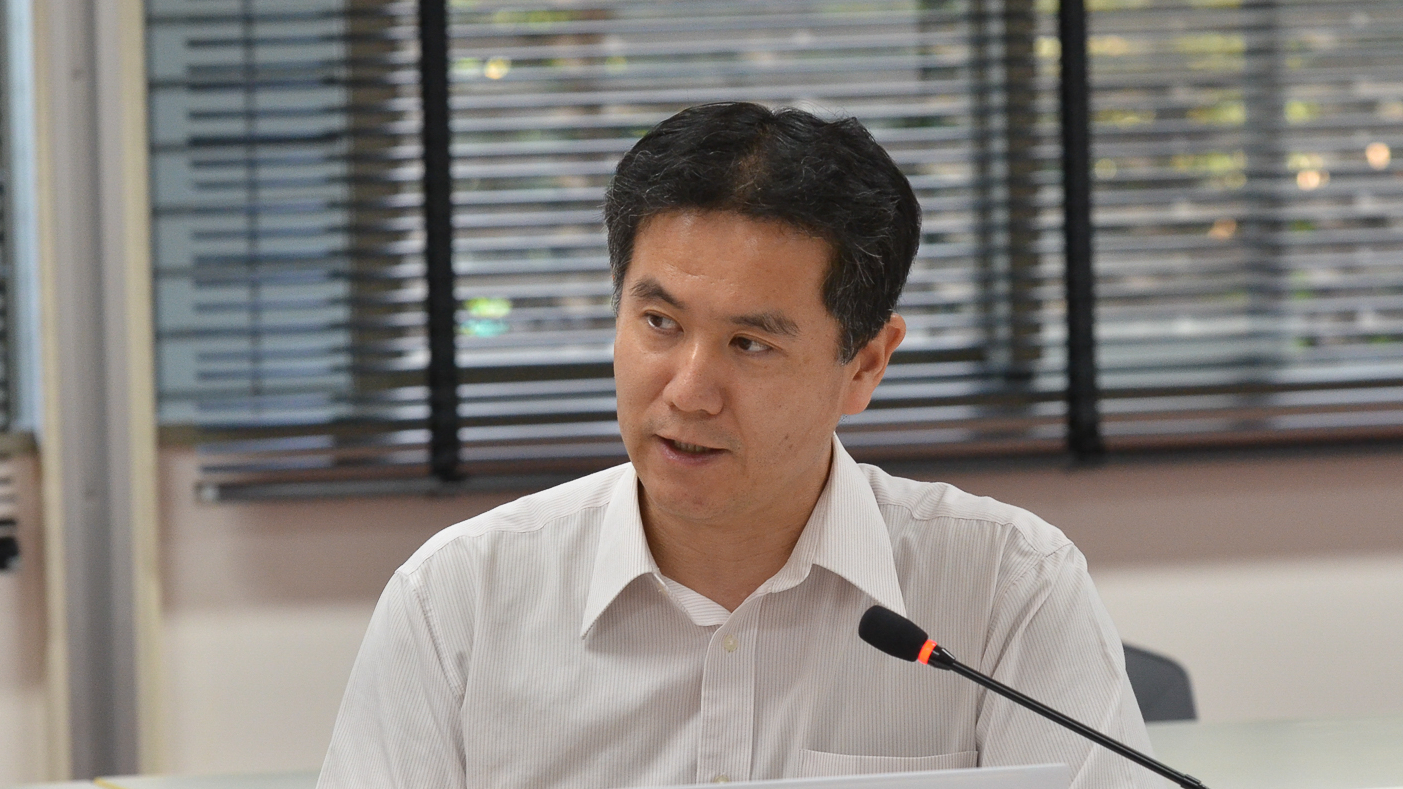
Sato Ichiro, executive senior research fellow at the JICA Ogata Research Institute, serves as a panelist
Responding to these remarks, Kikkawa cited ammonia and synthetic liquid fuels as examples of GX investments that have not been properly understood internationally, saying that “Mixed-fuel firing with ammonia is seen only as an extension of coal-fired power generation, but we should change the trend of international discussion by clearly indicating the timing of coal-free power generation. In addition, in the future, we will become a society that recovers generated CO2 and recycles resources for use. It is necessary to think about circulatory mechanisms through innovation.” He also expressed his view that “In Japan, large private power companies have established transmission lines and local power companies depend on them for distributing electricity. The use of these lines is costly and has restricted the free trade of energy within communities and beyond —a situation in which innovation is unlikely to occur due to the existing mechanism in place. In developing countries where mechanisms are not yet in place, it will be easier to move forward with innovative initiatives, which could, in turn, lead to the leapfrog phenomenon. Japan may be able to learn from the efforts of developing countries.”
Further discussions followed on how to think about the costs and benefits of energy, the current state of green bond markets in developing countries, and how development cooperation should support developing countries that have difficulty prioritizing carbon neutrality.
Participants also asked a wide variety of questions ranging from the potential of electric vehicles, the disadvantages of renewable energy to the activities of young people on environmental issues, which each panelist commented on. Finally, Kikkawa summarized the discussion, and said, “When we debate energy issues, each energy solution certainly has its own challenges, but we must propose feasible alternatives when we criticize it and discuss them in a constructive manner.” Mine, who moderated the discussion, noted that “From different perspectives, we were able to discuss the challenges and possibilities of energy issues in a comprehensive way. Energy issues are closely related to other goals of the Sustainable Development Goals (SDGs), and we should consider the links between them as well,” as he brought the Knowledge Forum to a close.
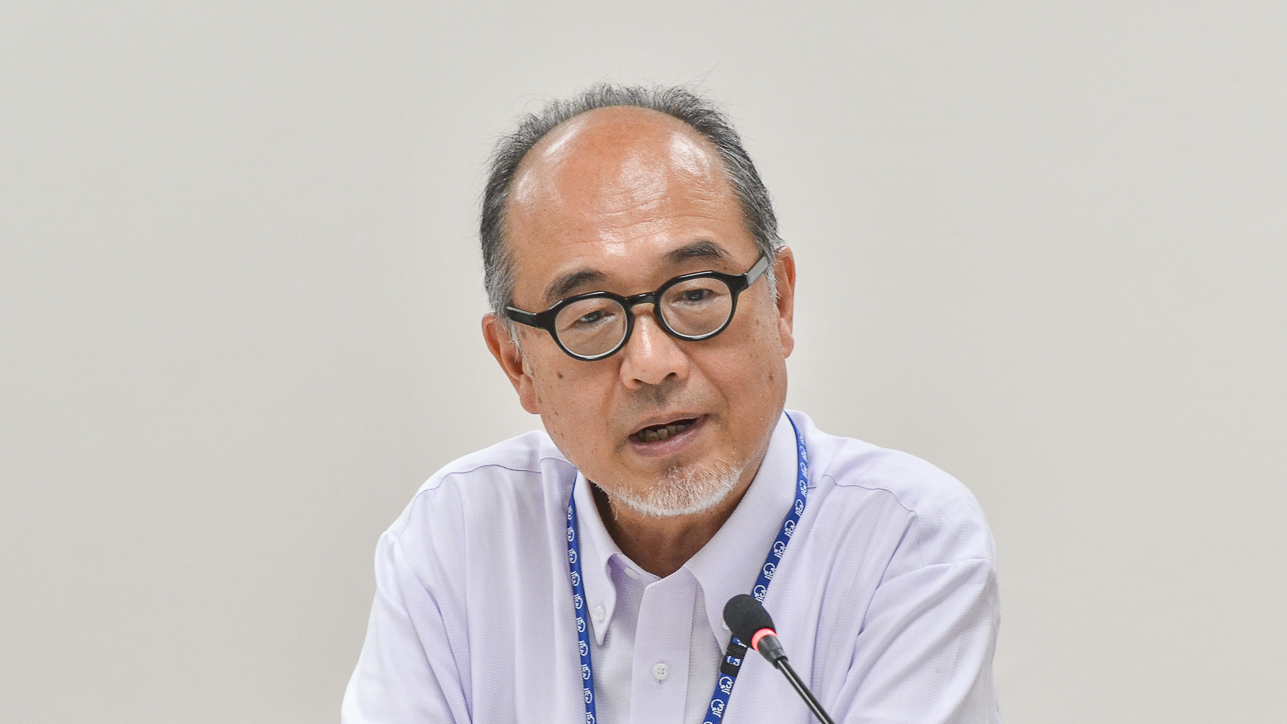
Mine Yoichi, executive director of the JICA Ogata Research Institute, serves as a moderatdor
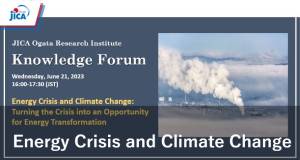

事業事前評価表(地球規模課題対応国際科学技術協力(SATREPS)).国際協力機構 地球環境部 . 防災第一チーム. 1.案件名.国 名: フィリピン共和国.

事業事前評価表(地球規模課題対応国際科学技術協力(SATREPS)).国際協力機構 地球環境部 . 防災第一チーム. 1.案件名.国 名: フィリピン共和国.

事業事前評価表(地球規模課題対応国際科学技術協力(SATREPS)).国際協力機構 地球環境部 . 防災第一チーム. 1.案件名.国 名: フィリピン共和国.

事業事前評価表(地球規模課題対応国際科学技術協力(SATREPS)).国際協力機構 地球環境部 . 防災第一チーム. 1.案件名.国 名: フィリピン共和国.

事業事前評価表(地球規模課題対応国際科学技術協力(SATREPS)).国際協力機構 地球環境部 . 防災第一チーム. 1.案件名.国 名: フィリピン共和国.
scroll